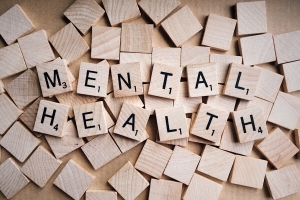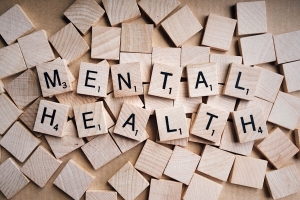Top Mental Health Problems for College Students Today

College is a tough phase in life.
With so many curricular and extracurricular activities to get involved in, a college student can definitely feel a lot of pressure and stress. Dealing with a lot of stressful situations can sometimes cause students some mental health problems. In fact, according to statistics, approximately 1 in 5 adults in the U.S. experiences mental illness in a given year. Among the various mental health issues that many college students experience include the following:
Addiction
Addiction is a chronic disease. It is a harmful condition wherein a person suffers from the physical and psychological inability to stop consuming a drug, activity, or substance. It can also include the overuse of prescribed painkillers. When a person is experiencing addiction, they lack the ability to control their substance use or to stop partaking in an activity. They eventually become dependent on it to cope with their daily life.
Anxiety
About 40 million people in the United States suffer from anxiety disorders. It is the most common group of mental illnesses in the country, but only about 37% of them receive treatment. According to the American Psychological Association (APA), anxiety is "an emotion characterised by feelings of tension, worried thoughts and physical changes like increased blood pressure." Anxiety alters how a person reacts to various situations, which may also cause physical symptoms. At the same time, the level of anxiety attacks may vary from mild to severe. 
Adjustment Disorder
Another stress-related condition is the adjustment disorder. When you experience stressful situations, you would respond differently than what would normally be expected and your reaction to the said stress might cause significant issues in your relationships, your work or studies.
Adjustment disorders can usually be triggered by huge life changes, such as death, moving to a new house, transferring to another school, losing your job, or having an illness. Normally, people will only need a few months to adjust, but people with adjustment disorders may experience emotional or behavioral issues that may affect how they adjust to certain life changes.
Impulsiveness
Impulsiveness is when a person performs actions or makes decisions without thinking clearly about it. Such actions can be viewed as risky, unnecessary, or inappropriate. When a person is impulsive, they tend to perform actions which may have undesirable outcomes. Impulsive people are seen as unpredictable, hasty, hot-headed, or unstable.
Bipolar Disorder
Also known as manic-depressive illness, bipolar disorder is a mental condition that causes unusual shifts in mood, energy, activity levels, and the ability to carry out day-to-day tasks. It is further divided into four basic types, with moods ranging from extreme energy and elation to very down and hopeless periods.
Depression
Clinical depression or major depressive disorder is a condition that causes a persistent feeling of sadness and loss of interest. It affects how you think, feel, and behave, which can lead to a variety of emotional and physical problems.
Depression can affect your normal day-to-day activities, and can even give you a feeling that life is not worth living. It’s not a condition that you can simply snap out of and its symptoms can even vary from person to person. It is essential for a person suffering from depression to consult a doctor to help clarify and specify the specific type of depression that a person is experiencing.
Post-Traumatic Stress Disorder
PTSD is a mental health condition that may be triggered by experiencing or witnessing a tragic event. Most people who went through traumatic events may find it difficult to cope, but with time, taking care of one’s health and with support from their loved ones, they usually get better. Symptoms of PTSD may include severe anxiety, flashbacks, nightmares and uncontrollable thoughts about the event.
Sleep Disorders
There is a wide array of sleep disorders that may affect the lives of some college students, the most common of which include insomnia, sleep apnea, narcolepsy, REM sleep behaviour disorder, and many more. These sleep disorders may take over your normal day to day activities if not properly treated. This is why it’s essential to see a doctor to be given proper and immediate treatment.
Panic Attacks and Panic Disorders
If you experience recurring and unexpected panic attacks, you may be suffering from panic disorders. A panic attack can cause different symptoms that can be terrifying to the person experiencing it. Symptoms may include shaking, sweating, shortness of breath, chest pain, feelings of choking and a fear of dying.
In fact, some people who suffer from it can easily mistaken panic attacks for heart attacks and many people tend to believe that they are dying. Some college students may experience symptoms of anxiety and other similar concerns on mental health during final exams, when working on projects with tight deadlines, or when having relationship problems.
Eating Disorders
There are three common types of eating disorders experienced by some college students:
- Anorexia Nervosa - thinking of one’s self as overweight, even if he/she is dangerously underweight;
- Bulimia Nervosa - frequent consumption of unusually large amounts of food in a relatively short period, then attempt to vomit, fast, take laxatives or diuretics, or exercise excessively;
- Binge Eating - having a lack of control in eating unusually large amounts of food in relatively short periods of time.
Whether you have any of these disorders or not, it is always important to seek professional help if you have any problems that may affect your scholastic performance. More importantly, it’s essential to live a healthy lifestyle by eating a balanced meal, exercising regularly, avoiding alcohol or other substances and getting enough sleep regularly. Remember that your health should always be your top priority.



